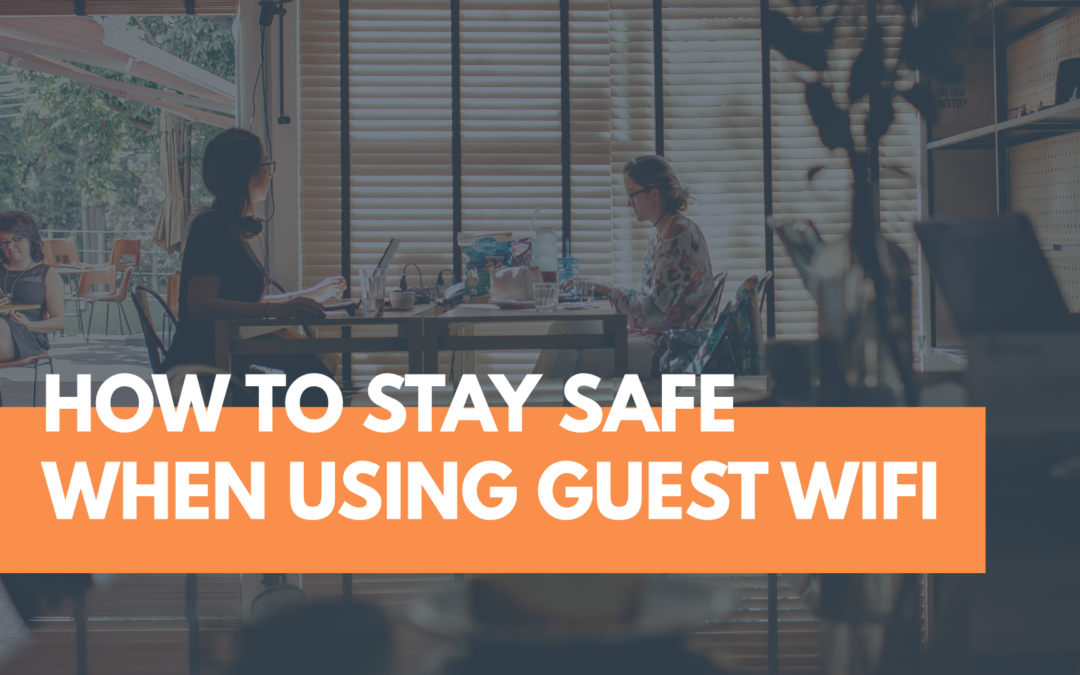Every day, the average internet user shares a host of Personal Identifiable Information (PII) on the web. Whether it’s your name, address, login credentials, credit card number, or something else, sharing PII is often essential to getting things done, but you have to be mindful of security.
Ultimately, using a secure personal hot spot is your best bet when you’re on the go, but if you’re using guest WiFi, follow these tips to keep your PII safe from snooping, man-in-the-middle attacks, and other cybersecurity concerns.
What Information Can Hackers Steal?
You hear about credit card information being compromised all the time when databases are targeted, but there are actually plenty of ways for hackers to get their hands on your personal information–and they’re after far more than credit cards.
Threats are everywhere on the web and they can target a business you interact with, your own device, or even your WiFi connection. Guest WiFi networks are a common target because lots of people use them throughout the day, representing multiple opportunities to steal PII.
Hackers might be after anything, from personal and financial information to login credentials that allow them to take over your accounts. While the information might not seem extremely valuable at first thought, this is info that they can resell on the dark web or leverage to break into other accounts. For instance, getting the credentials for your Facebook account means they can pose as you and potentially get money or personal information from friends and family.
Whether you think you’re doing something important on Guest WiFi or not, realize that hackers are after just about anything that’s accessible. That’s why protecting yourself is key.
Things to Keep in Mind Before Using Guest WiFi
Before you hop onto a Guest WiFi network, it’s crucial that you don’t just blindly trust your options. Not all WiFi networks are secure, and they aren’t always what they seem.
Beware of Man-in-the-Middle Attacks
A man-in-the-middle attack can deceive you because the hackers behind them work hard to make you think that you’re connecting to a public WiFi network. In reality, they’re impersonating a network–perhaps at a restaurant, gas station, or hotel–so that all of your personal information is routed straight to their devices.
Consider Company Policies and Security
Many businesses offer some level of “security” by requiring guests to enter a password to access the WiFi network. For instance, most hotels will allow you to use the free WiFI by entering some combination of your last name and room number, but this isn’t foolproof.
Oftentimes, these simple passwords do more to offer false peace of mind to the user than they do to actually protect the network or your information. Even if you’re paying for an upgraded, supposedly more secure service, you should always ask the company about the security measures that are actually in place. Ideally, there will be an advanced system like Cisco Umbrella, which is capable of protecting all users on the network.
Think About Other Users
In many cases, security threats arise not because of a targeted attack, but because of other users just like you. Think about all the other people who are using the WiFi network before you connect to it because it only takes one person on the network to unknowingly have a virus on their device.
When a device with a virus connects to WiFi, that virus tries to infect every device on the network. The more people using the network at once, the more likely this is to happen, which is why hotel WiFi is such a major security threat.
How to Protect Yourself
Recognizing the lack of encryption on guest WiFi networks is a big first step to protecting yourself. Simply being aware of the security threats will help keep you more mindful of what PII you transmit next time you’re on a guest network, and it can remind you to activate an anti-virus/anti-malware software. Better yet, look into Cisco Umbrella, which offers DNS-layer security and multi-pronged protection against all major threats.
Adding multi-factor authentication (MFA) to all of your accounts is also wise because it offers an extra layer of security should any of your credentials ever be compromised. Lastly, just avoid guest WiFi when you can by utilizing a personal hotspot. By taking some extra steps to protect yourself, you can avoid costly and irrefutable data loss.


Recent Comments